
MLB standings ordered by average exit velocity: Braves blowing away baseball
What if the MLB standings were all about hitting the baseball hard? We look at the 2023 MLB standings ordered by average exit velocity.Just about any baseball fan can go to any website and look at the MLB standings based on the traditional wins and losses. We know that the Tampa Bay Rays are pac...
1970-01-01 08:00

Replacing Tom Brady off to a horrendous start for the Buccaneers
After the Tom Brady era, the Bucs' quarterback battle for 2023 will be a battle alright -- a battle of pure, unadulterated mediocrity.The G.O.A.T. has come and gone in Tampa Bay, and in his wake lies not two baby goats, but two hogs rolling around in the mud trying to get the upper trotter....
1970-01-01 08:00

Club Leon vs. LAFC - CONCACAF Champions League final preview: TV Channel, live stream, team news & prediction
Leon vs. LAFC - CONCACAF Champions League final preview: TV Channel, live stream, team news & prediction.
1970-01-01 08:00

Jose Mourinho’s record in European finals
Jose Mourinho's record in Champions League and Europa League finals across his illustrious career. He has managed Porto, Inter, Manchester United and Roma to showpiece events on the continental stage.
1970-01-01 08:00
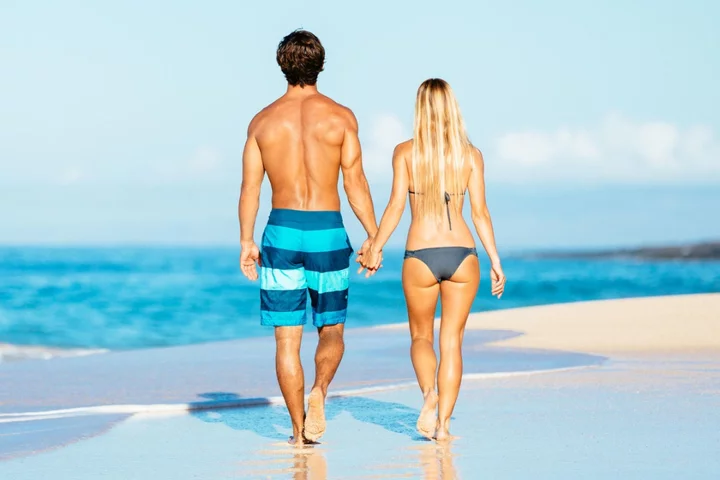
Watching Love Island this year? How to avoid comparing your body to what’s on screen
ITV2 has and revealed the first 10 contestants who will be heading to Majorca to take part in the summer season of Love Island. Commercial estate agent Catherine Agbaje, semi-professional footballer Tyrique Hyde and model Ella Thomas are among the islanders who will enter the Spanish villa when the new series starts on Monday, June 5. We’re set for another summer of romantic recouplings, dramatic dumpings and bombshell arrivals, but it’s important to remember that this brand of ‘reality’ TV doesn’t always reflect the real world. Especially when it comes to body diversity. Love Island contestants lounge around in swimwear all day, meaning there’s more of a focus on their physiques than on other shows. While for some viewers, the clothing (or lack thereof) doesn’t make a difference, it’s understandable if you do find that you compare yourself unfavourably to the scantily-clad islanders. “It depends really on the way that we do that comparison, whether it’s positive or negative,” says Lowri Dowthwaite, lecturer in psychological interventions at the University of Central Lancashire. “We do know that there’s a big link between that kind of negative comparison and people feeling bad about themselves or feeling that they’re not good enough.” There may also be a gender divide when it comes to comparison and body image. Dowthwaite says: “Women have a tendency to be to compare themselves a lot more. Rumination around that as well tends to be higher in women… and that can be quite damaging.” Indeed, a 2019 YouGov survey found that 75% of Love Island viewers agreed with the statement ‘it is important for me to look physically attractive’, the majority of which (43%) were aged 18 to 29. “When people are younger, I think naturally we are much more self-conscious and much more preoccupied with the way that we look,” says Dowthwaite. “As people get older, past 30 or 40, the preoccupation gets a bit less. I definitely think it is a bit of a thing that affects the younger people.” In turn, this ‘compare and dispair’ mindset can affect our behaviour or self-esteem. “People get drawn into that negative self-evaluation, where they maybe focus in on one particular part of their body that they’re not happy with. In extreme cases, it might have an impact on dieting,” Dowthwaite continues. Although she points out: “We can’t definitely say that the media and what we see causes eating disorders, because it’s too complex to say that. I think it’s about how we consume [TV] helpfully.” So how can viewers enjoy Love Island in a balanced, body positive way? Remember it’s not always realistic First of all, remind yourself of all the technical trickery that goes into making glossy TV shows. “It’s filmed in a way with lighting whereby it’s going to accentuate people’s features, there’s a lot of editing that goes into it as well,” says Dowthwaite. Same goes for the glamorous promo materials: “It’s photographed in such a way that, you know, it’s not real life – real people have flaws, we all have flaws.” Plus, these contestants have had weeks or months or get ready for their ‘big TV reveal’. “They might have gone through rigorous regimes to get themselves looking as good as they can possibly look,” she says. It’s not healthy to try to have the same figure as someone who is, for example, naturally very thin: “If you’re not genetically meant to be that slim, then you’re not going to be.” Monitor what you’re consuming With reality shows that are designed to keep you hooked, it’s easy to forget how they might be affecting your mood. “You need to become conscious of it,” says Dowthwaite, who recommends keeping a diary of what you’re viewing in terms of TV or social media and monitoring how it makes you feel. “If you find that you’ve consumed lots of things like Love Island and things that are appearance-based and you’re feeling quite low and moody… there’s probably a correlation between that.” Seek out body positivity To counteract the effects of unattainable reality TV ideals, it can help to follow body positive Instagram or TikTok accounts. “We need to see more of that, I think, in the media, to help people to not be so self-critical,” says Dowthwaite. “And to kind of appreciate that we’re all different shapes and sizes – and that’s good.” Focus on other activities Ultimately, it’s not healthy to derive your self-esteem from your looks, which is why you need to remind yourself that there’s more to life than having a Love Island-level body. “What are you good at? What talents do you have? What interests do you have? What are your strengths? Those kinds of things are a lot more important,” says Dowthwaite. If you’re feeling down about yourself, switch off the telly and take part in some mood-boosting activities. “Exercising and using your body to do things that you enjoy, like going for walks in nature, or doing yoga or horseback riding or whatever it is you’d like to do, that’s a way to have a healthier relationship with your body,” Dowthwaite recommends. “Moving your body in the great outdoors is just an excellent way to kind of feel that all that stuff doesn’t really matter that much.” Love Island returns to ITV2 and ITVX on Monday June 5. Voting for the first coupling up opens at 8am on Thursday on the Love Island app. Read More Charity boss speaks out over ‘traumatic’ encounter with royal aide Ukraine war’s heaviest fight rages in east - follow live Dating ‘green flags’ to look out for on Love Island – and in your own life Crackdown on vape adverts targeting kids – what parents can do How to make a small garden feel bigger
1970-01-01 08:00
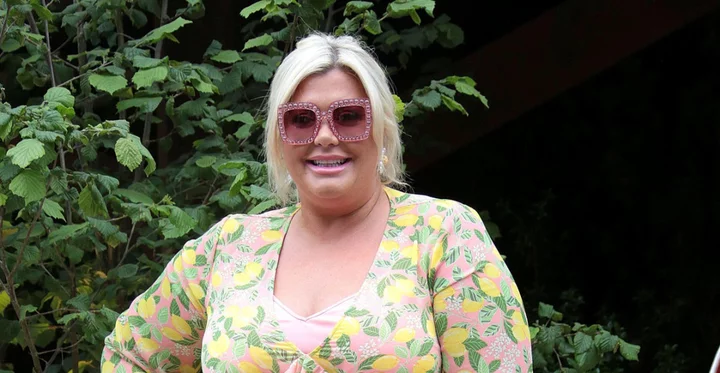
Gemma Collins says she wouldn’t ‘need to’ consider surrogacy: ‘I can have the best doctors going’
Gemma Collins has opened up about her future plans for motherhood, amid her battle with polycystic ovary syndrome (PCOS) and an underactive thyroid. The former The Only Way is Essex star dismissed the suggestion that she could use a surrogate to have children, declaring that she has “the best doctors going” to help her get pregnant when she is ready. Speaking to OK! Magazine at the Chelsea Flower Show recently, Collins, 42, admitted that she did not know if she sees herself ever having children in the future, despite having previously said she was “desperate” to have a baby with fiancé Rami Hawash. “Obviously I’ve got PCOS and all of that,” she said. “I could have a child at 50. If I’d had kids sooner, I would probably have been crazy, whereas now, I’m Miss Organic, I can just be at Zen with the child.” However, Collins said that going to mother and toddler groups has “never interested” her, unless they are in “Knightsbridge, darling”. “I’m happy to host my own one indoors or around the vegetable patch,” she continued. “A bit of organic pressed champagne! “It’s a lot having a kid. It’s a big commitment but it’s also very rewarding. But my life will take me where it’d going to take me. It’s taken me this far and as sure as hell, it’s not over yet.” Asked if she would consider having a child via surrogate, the TV personality said: “I don’t think I’ll need too. I’m The GC, honey. I can have the best doctors going. I’ll just ring one up and say, ‘Right, come on, get me pregnant!” Collins also gave an update on her mental health and said she was off all anti-depression medication as it “really clouded” her judgement. In her 2021 documentary Gemma Collins: Self-Harm & Me, Collins revealed that she was “always put off having children” due to the fear that her depression and self-harming would make her an “unfit mother”. However, instead of taking medication to treat the condition, she now uses a device called the Flow Neuroscience Headset. The device, created by a Swedish company, uses electric pulses to increase brain activity and is currently being trialled by the NHS. Collins said: “I do it in the morning when I’m making a cup of tea. It’s a head device programmed to an app on your phone and it stimulates the frontal area of the brain linked to depression.” The I’m A Celebrity star claimed the headset has so far helped to clear her head and bring her emotions back, which she said were “numbed” by anti-depressants. “I’ve got all my feelings again and I felt that my judgement was quite clouded. I didn’t feel like I could see dodgy people around me. People were taking me for granted but my brain is so sharp now and I’ve got no side effects,” she said. “I was desperate to get off medication – but everyone is different and they need to consult their GP. But I was like, ‘I don’t want them in my life.’ That’s it.” Read More Dani Dyer chooses matching initial names for newborn twin daughters: ‘My heart feels so full’ Succession’s Sarah Snook welcomes her first child with husband Dave Lawson Queer parents need everyone’s support, not people calling us ‘breeders’ Gemma Collins urges women to talk openly about incontinence Sarah Beeny shares health update after all-clear from breast cancer Crackdown on vape adverts targeting kids – what parents can do
1970-01-01 08:00
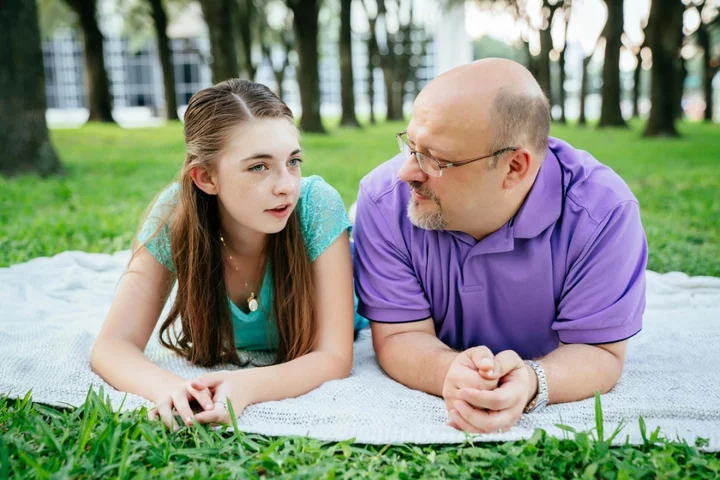
Crackdown on vape adverts targeting kids – what parents can do
The Government is cracking down on vape marketing targeted towards children and young people, Rishi Sunak has said. The news comes days after the Prime Minister spoke about his concerns his own daughters would potentially be targeted by vape marketing on ITV’s Good Morning Britain. Ministers have now pledged to close a loophole allowing retailers to give free samples of vapes to children in England, amid concerns over the proportion of children trying e-cigarettes. There will also be a review into banning retailers selling “nicotine-free” vapes to under-18s, and the Government will look at the rules on issuing fines to shops that illegally sell vapes to children. The Prime Minister said he was “deeply concerned” about an increase in children vaping and was “shocked by reports of illicit vapes containing lead getting into the hands of schoolchildren”. Sunak said: “That is why I am taking further action today to clamp down on rogue firms who unlawfully target our children with these products. “The marketing and the illegal sales of vapes to children is completely unacceptable and I will do everything in my power to end this practice for good.” Why is vaping bad for children’s health? “We could argue vaping doesn’t have the amount of toxins cigarettes have – up to 70 of these cause cancer – but vaping is not completely harmless,” says GP Dr Anita Raja. “It’s very important to protect your organs, especially your lungs and brain. Vaping can be particularly detrimental to people under the age of 18 who are still developing.” Most vapes contain nicotine, which is highly addictive and can cause can cause an increase in blood pressure, heart rate, flow of blood to the heart and a narrowing of the arteries. “It can become very difficult to get off the nicotine – so why would you want to be addicted at such a young age?” Raja asks. The other problem with vaping is that experts don’t yet fully understand the long-term risks because it’s such a new phenomenon, she adds. “Let’s not forget when cigarettes were introduced many decades ago we didn’t know that they could cause cancers and long-term irreversible lung damage.” How to talk to your children “First up, learn about the facts of vaping yourself. Get information from a reliable source,” says parenting expert Liat Hughes Joshi, author of Help Your Child Cope With Change. “So that when you do end up discussing this with your teenager you’re coming at it from a place of knowledge and you’ll feel more confident.” The conversation could be tricky, so approach it calmly. She advises: “Choose your time in place carefully. Don’t pounce on your teenager when they’re in the middle of something or when they are stressed about an exam. Choose a time where you’re both feeling relatively relaxed.” “Instead of telling them not to, what you are much better doing is giving them that information about the real risks and the downsides of vaping, so that they can hopefully make a decision of their own which is the right decision,” Hughes Joshi says. “It’s definitely worth talking to them about ideas around [peer pressure] and giving them the confidence to push back and say, ‘I don’t have to copy all my peers if they are vaping’.” Similarly, if you know or suspect that your child has already vaped, try not to fly off the handle. “Don’t automatically scold them,” says private GP Dr Suhail Hussain. “Find out why they tried it, and then listen. Be understanding and informative, not angry and disappointed that they would do this in the first place.” What about if you vape yourself but don’t want your child to follow suit? “We need to lead by example,” says Raja, who believes vaping should be used only as a way for adults to quit smoking. “It is almost impossible to convince your children to not vape if they see you doing it. If you don’t want your child to vape, then you shouldn’t vape, or certainly not vape in front of them.” Read More Charity boss speaks out over ‘traumatic’ encounter with royal aide Ukraine war’s heaviest fight rages in east - follow live How to make a small garden feel bigger How not to get ripped off when upgrading your kitchen The best scented plants to enhance your balmy summer evenings
1970-01-01 08:00
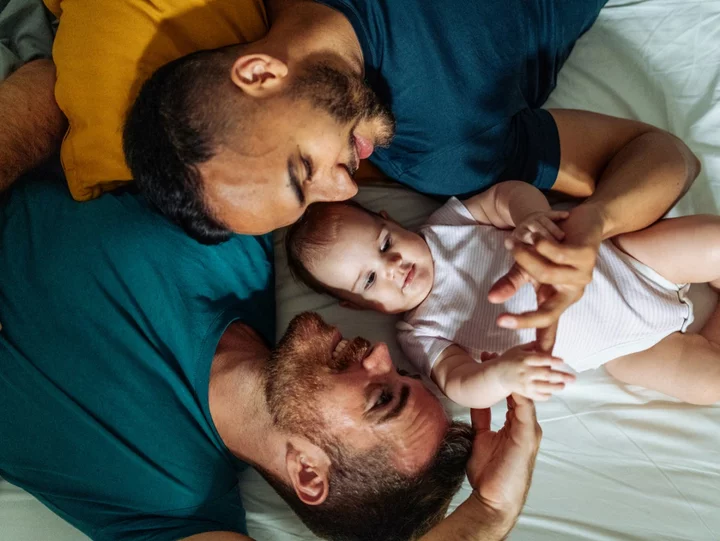
Queer parents need everyone’s support, not people calling us ‘breeders’
A recent book called The Queer Parent, written by Lotte Jeffs and Stu Oakley, calmly opens with the line: “Ninety per cent of queer parenting is simply… parenting”. It’s a fair point. Whether you’re male, female or non-binary, single or partnered, and regardless of your sexuality, all of us who parent aim to meet the exact same needs for our children, day in, day out. The title caught my attention because I think there’s something very timely and profound about the act of being a gay or queer parent today. It’s doing the work that many (dare I say most) people want to see in society – namely raising a new generation of non-toxic humans, making the world a happier place to be different – but in the slow grind of parenthood, not just in the quick flash of activism. I really believe gay and queer parents are changing the world, in a very deep yet unsexy way. Mum and mummy being at the school gate, dad and daddy collecting a child from nursery, or as we’ll get into, dad giving birth to a baby son or daughter. They’re changing the world by being active, visible and engaged parents. But there’s a slightly awkward, under-discussed aspect to this that has truly got under my skin in the eight years since I’ve been a parent. I’m pansexual, so I fancy men as well as women, non-binary people and pans. But oddly I’ve always been frightened to talk about parenthood with most of my avowedly gay male friends – because I’m never quite sure if anyone’s going to derogatorily refer to me as a “breeder” or not. It’s hard to know how well-known the term “breeder” is. I personally used to hear it a lot more back in the mid-Noughties when I was in my early twenties. It’s essentially a slightly bitchy term that’s interchangeably derogatory to people with kids and/or straight people as a whole. As a word, it’s a pretty effective zinger. Straight people have tended to use sexual imagery to define and denigrate gay people. It seems fair that gay people would do the same to heterosexuals. “Breeder” reduces the pleasures of sex to a slightly dehumanised process. In fact, unconnected to sexuality, Gulliver’s Travels author Jonathan Swift used the term to reduce people to a brutal, almost farmyard functionality in a satirical essay from 1729. It’s important to establish that I’m not here to spank gay men on the bum. Neither am I here to accuse them of “heterophobia” either – which I’ve put in quote marks because I’m dubious that it can even exist as a concept. If I was an exclusively gay guy, I might robustly define my sexuality against heteronormativity in ways which could be punchy and sharp. I might also – by virtue of a lifetime of homophobia and trauma that may have started in the home as a child – have latently negative views about the whole concept of family. But I am who I am now, and despite understanding all this, I’m still getting weary of it as a trope, and also as a reason not to talk about the many genuine ecstasies of parenthood. I like being a dad and I like dating guys. These things shouldn’t be so controversial – yet weirdly, I find it’s gay men who have more slack-jawed incomprehension of these two facts than any other group in society. My own personal beef is very trifling in the scheme of things, however. The much bigger picture is that – newsflash – gay, queer and trans people have kids. Loads of them. While data is limited, there was a 40 per cent rise in same-sex parents from 2015 to 2019. Anecdotally, it seems to be a much greater phenomenon than is reported. The same goes for the rarely examined hardships LGBT+ people typically go through to even have kids: namely the incredible anguish of IVF and the epic emotional journey of surrogacy. You’d expect increased visibility of gay and queer parents would have phased out the use of the word “breeder” as a pejorative, but weirdly it lives on – especially on TikTok where, perhaps like an unkillable echo of my own twenties, it’s mostly young people using the word as a way of defining their queerness and riling up straights. What makes my heart sink, beyond knowing that a younger generation is using the same dumb-ass words people said 20 years ago, is that this is a really, really bad time to start being unsupportive of gay parents. While queer visibility may feel greater than ever, the world is going backwards in many respects. Even just in the realm of children’s culture, things as harmless as a drag artist reading stories can draw an angry mob of culture warriors – as happened at Tate Britain in London in February. Look at Florida – once the home of fictional queer icons The Golden Girls, now home to Republican governor and presidential hopeful Ron DeSantis – and you’ll see books with titles as benign as This Book Is Gay banned as a result of his vociferously “anti-woke” legislation. We all know that creating this type of hostile environment will surely result in more bullying, more hatred, more lives blighted. While queer visibility may feel greater than ever, the world is going backwards in many respects It’s pathetic, cruel yet grimly successful at the same time. With every small news story or stunt, a palpable hostility festers. Thus anything that drives a wedge between gay/queer people and parenthood is a bad look right now – especially with elections looming in the US and Britain that I fear will see the issue of gender identity playing a huge, calculatedly divisive role. What better way to rebuff this negativity than by strongly standing up for gay and queer parents. Specifically, we could start standing up for men having babies. Trans men like the British journalist Freddy McConnell who a few years back gave birth to a child who seems to be doing great (and likes a good splash in the sea), or Iowa-born Tanius Posey, who thankfully was able to breastfeed his child despite simultaneously getting online abuse for it. Logan Brown, also from the UK, is a trans man who has been documenting his pregnancy over the past few months with genuine clarity and candour. He gave birth to his daughter Nova just over a week ago. Celebrated gay NYC artist Keith Haring frequently placed a baby into his work, a shining symbol of hope and playful optimism for the future. Maybe in the same spirit as Haring, we could all do with a new beginning in our attitudes to gay and queer parenting, inspired by a rather miraculous baby such as Nova. Read More How OCD can destroy relationships: ‘I had the obsessive fear that I might cheat’ Women with body hair remain a cultural taboo, and I can’t see it changing Flip-flops, nudity and ‘up the vajayjay!’: How the red carpet became a platform for protest
1970-01-01 08:00

Final Premier League form table since the World Cup
How the Premier League table looked after teams returned from the 2022 World Cup.
1970-01-01 08:00
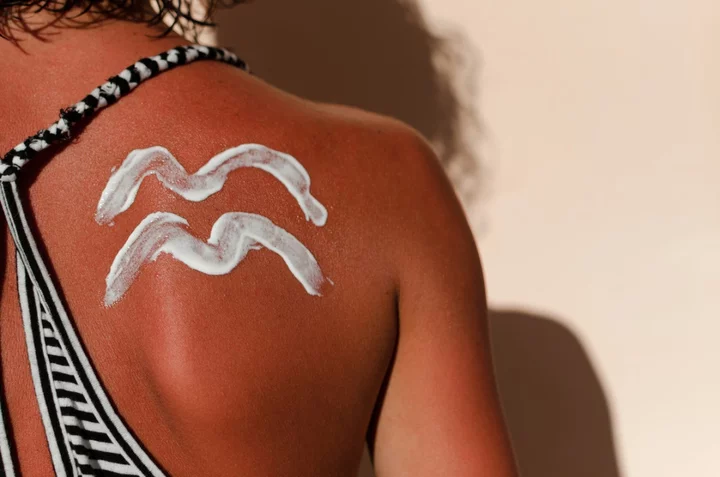
The truth about applying after-sun on sunburnt skin, according to the experts
After the UK recorded its hottest day of the year on Sunday, with some parts of southern England reaching 31C, many could be waking up with sore, sunburnt skin today. Taking care of your skin after excessive sun exposure is incredibly important, as failing to do so could lead to long-lasting damage. However, if your first course of action after sustaining a sunburn is to immediately buy and apply after-sun, then you may not be doing an adequate job. According to the experts, applying after-sun could do your skin even further harm if you don’t take a thorough look at the ingredients. That’s why it may be a wise idea to opt for an aloe vera gel instead. “After-sun formulas tend to have rich, thick consistencies containing oils, which create an emollient barrier on top of the skin trapping in the heat in the upper layer of the epidermis and exacerbating the inflammation and ‘burn’ feeling on your face,” Michaella Bolder, Time Bomb skincare expert tells to The Independent. “Plus, many over the counter after-suns will contain chemicals and/or fragrance. This will just irritate the damaged skin!” Aloe vera has been highly regarded for a very long time due to its remedial properties, Lorraine Shrivener, director of Eden Skin Clinics, explains. “Aloe vera has been a trusted skin saviour for many years,” she says. “With its immediate cooling effect to the skin, it’s a firm favourite for post-suncare.” According to Ms Shrivener, aloe vera is most potent when attained as a pure, clear gel. While gels allow heat to escape from the skin, thicker creams that have been designed to lock in moisture could trap heat within the skin, making it feel cooler rather than hotter. However, as medical director of CosmedicsUK and GP Dr Ross Perry points out, the medicinal properties of aloe vera have not technically been affirmed by scientific research. “Aloe vera is a traditional herbal remedy believed to reduce sunburn symptoms,” he explains. “There is no scientific evidence in support of its use for sunburn, but anecdotal evidence is that it is soothing and safe and can feel cooling.” Aloe vera is a plant species that can trace its origins to the Arabian Peninsula. Mentions of aloe vera as a curative ingredient can be found in the Ebers Papyrus, from 16th Century BC, and in Pliny the Elder’s Natural History, which was written in the mid-first century AD. Despite the supposed lack of scientific evidence to back its use as a treatment for sunburn, many health professionals still recommend it for soothing irritated skin. “Aloe vera is thought to have a myriad of positive effects on skin, especially sunburnt skin,” says Dr Natalie Spierings, consultant dermatologist at Dermatica. “True clinical effectiveness has yet to be established. But aloe vera is not harmful and it might aid in helping calm down sunburnt skin, so it is worth giving it a try.” While some skincare experts would advise opting for a clear aloe vera gel instead of a heavier, moisturising after-sun when treating sunburn, others would suggest simply finding an after-sun that contains the plant. “After burning the skin you should think cool and repair,” says Ms Bolder. “The best way to do this is to apply a formula with a high water and high aloe vera content - the more natural and gentle the better! “Aloe vera has quite impressive cooling, healing and antiseptic properties so will beat a generic after-sun every time.” Using an after-sun can still be beneficial if you make sure that the ingredients are gentle and natural as possible. However, if you’re not entirely sure of whether a specific after-sun will do more harm than good, then going for a clear aloe vera gel would likely be your safest option. With around 16, 200 new cases of melanoma skin cancer reported in the UK every year, according to Cancer Research UK, looking after your skin is of the utmost importance during the hotter months. Dr Vikram Rajkomar, a consultant dermatologist at Pall Mall Medical who specialises in the treatment of skin diseases and skin cancer, recommends speaking to a consultant dermatologist as soon as possible if pain caused by sunburn persists. Read More The truth about applying after-sun on sunburnt skin, according to the experts Mum’s warning after viral TikTok hack left skin peeling from her face TikTok Influencer hospitalised for after horse falls on her at Arizona ranch Teenagers are increasing their chances of cancer with 'sunburn art' Europe heatwave: Tourists warned as temperatures set to soar
1970-01-01 08:00
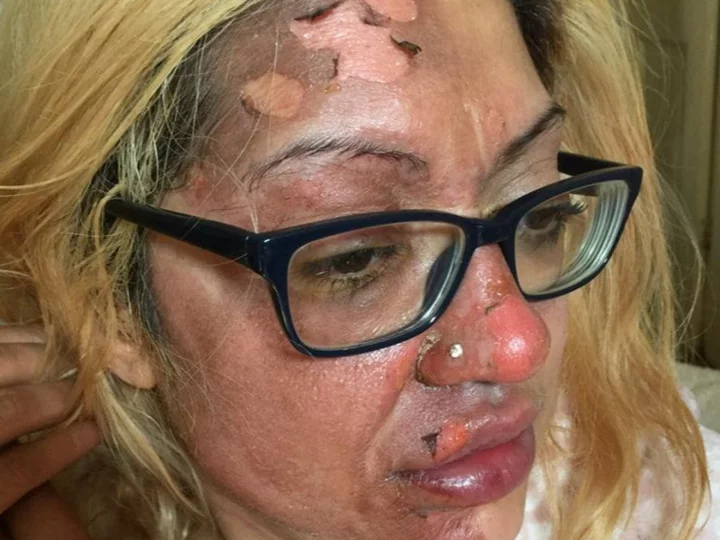
Mother’s warning after viral TikTok hack left skin peeling from her face
A terrified mother has warned against cooking eggs in a microwave after the viral TikTok ‘hack’ exploded and left her skin pealing from her face. Shafia Bashir, 37, said she’d been in “absolute agony” after making a poached egg using a much-publicised recipe available on the internet. She’d first poured some boiling water in a mug before adding the egg and then put it in the microwave for a couple of minutes until it had cooked. But when she put a cold spoon on the egg, it erupted “like a fountain” and scolded the right side of her face - leaving her in the “most excruciating” pain of her life. Shafia went to A&E where her burns were treated, but she said they were still stinging 12 hours after the incident. And though her wounds have now healed, the mum-of-one has still cautioned others to think twice about attempting the popular dish. She said: “I just don’t want anyone else going through that, because it is trending on TikTok…It was the most excruciating pain in my life. “It was a terrifying time for me. I was in absolute agony. “As soon as I put the cold spoon in, it exploded like a fountain and it scolded me. “I put my face under the tap and then had to get my mate to look after my daughter so I could go to A&E. “My face has healed now, luckily with no scars. I used Vaseline, Sudocrem, whatever I could get my hands on.” Shafia, from Bolton, Grtr Manchester, said she had been making the dish for three years when she’d decided to cook it on May 12 while feeling “starving” She had followed a recipe that her ex-mum-in-law had taught her, but on this occasion, she was left stunned when the cooking trick ended in disaster. She said: “I did it exactly the same as I usually do it. I had already made the toast, I was starving! “My ex-mother-in-law told me about it. She told me how to make a poached egg in the microwave. I had been doing it for three years. “I boiled the kettle, half-filled the mug with water, put salt inside, the egg inside, and microwaved it for a minute. It wasn’t cooked, so I put it in for another minute.” “After it happened, I put my face under the tap for 20 mins. But the burning lasted for 12 hours. It just didn’t stop.” The British Medical Journal previously said that microwave ovens should display clear warnings about exploding eggs. Cooking shelled eggs in a microwave is dangerous because the casing holds in heat. Once you have removed the egg from the microwave, it will carry on cooking itself and any disruption can cause an explosion. But similar dangers can apply when cooking sunny side up or poached eggs in the microwave. These cooking hacks proved popular on social media sites such as TikTok, as people look for ways to save time with everyday tasks. But it’s not the first time the trick has gone wrong, with Chantelle Conway, from Farnworth, claiming a similar thing happened to her in 2021. Shafia said she had been left traumatised after the incident and vowed never to eat an egg again. But she has also seen the funny side of her experiences and made light of them to her 15,000 followers on TikTok. Shafia said: “For my last videos on TikTok, I did Beauty and the Beast and Tony Montana from Scarface, with the burn. “My followers thought it was a filter!” Read More Woman sparks debate by documenting busy last day at work after being fired: ‘Just leave’ Selena Gomez ‘yells’ at security guard at Beyoncé’s Renaissance tour Mother hit with deluge of abuse for taking toddler’s packed lunch to a restaurant Schoolboy almost dies from swallowing magnets for TikTok challenge Woman shares honest review of New York City apartment TikTok mom slammed after making 5-year-old son run in 104 degree heat
1970-01-01 08:00

Abuduwaili Abudureheman: Hong Kong denies detaining Uyghur student
Abuduwaili Abudureheman was allegedly interrogated by police on arrival at Hong Kong airport.
1970-01-01 08:00
